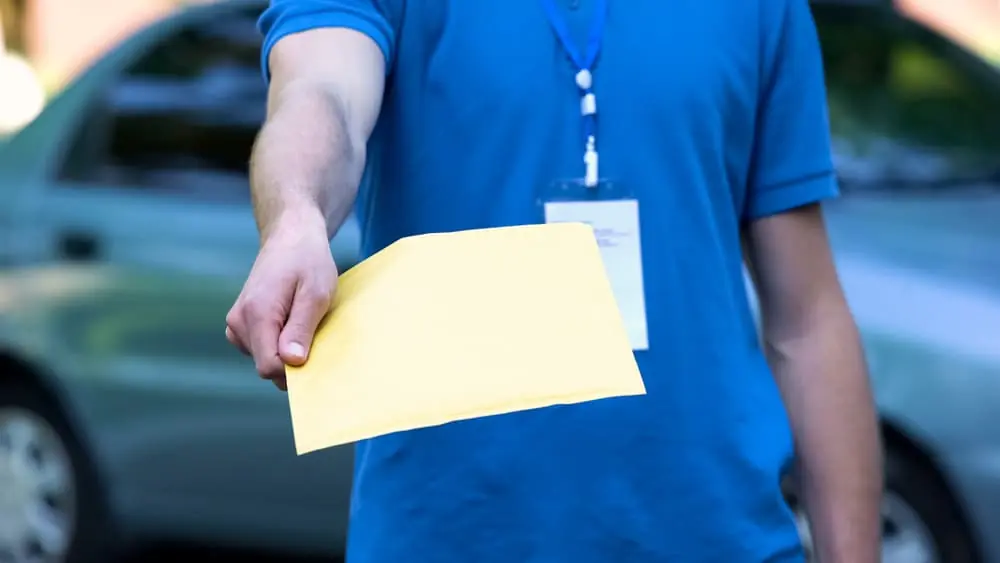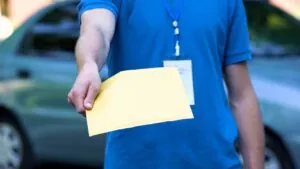Filing for divorce is a challenging and emotional decision, but it becomes even more frustrating when your spouse actively avoids being served with the divorce papers. Whether they are deliberately dodging service to delay the proceedings or simply refusing to cooperate, you still have legal options to move forward. The good news is that courts recognize that some individuals try to evade service, and there are alternative legal methods to ensure the divorce process can proceed even if your spouse refuses to accept the documents. If you are facing this obstacle, understanding the legal process and working with a divorce attorney can help you handle this situation effectively.
Contact Us Today For A Consultation
Why Is Serving Divorce Papers Necessary?
Serving divorce papers is a critical step in any divorce proceeding. The purpose of service is to:
- Notify the other spouse of the legal action being taken.
- Give them an opportunity to respond and participate in the proceedings.
- Ensure fairness in the legal process by preventing one party from being blindsided by a divorce judgment.
The law requires that the spouse being served receives formal notice, which is why serving divorce papers must be done correctly and legally. Typically, this is done by a process server, law enforcement officer, or another legally authorized individual, depending on the state’s laws. If your spouse is actively avoiding service, this can delay your divorce—but it does not mean the divorce cannot move forward.
Common Ways a Spouse May Evade Service
Some spouses refuse to cooperate in an attempt to delay or complicate the divorce process. Some common tactics include:
- Not Answering the Door – If they suspect someone is trying to serve them, they may refuse to answer the door to avoid accepting the papers.
- Moving Without Leaving a Forwarding Address – Some spouses may relocate suddenly, making it difficult to locate them.
- Changing Work Locations – They may switch jobs or avoid their usual workplace if they suspect service is coming.
- Ignoring Mail Service Attempts – If the court allows divorce papers to be served by mail, they may refuse to sign for certified mail.
- Traveling Frequently – Some individuals leave town for extended periods to avoid being served.
If your spouse is engaging in any of these tactics, do not panic—you have legal options to ensure the divorce moves forward.
What to Do If Your Spouse Evades Service
If your spouse refuses to be served, the court does not allow them to block the divorce indefinitely. Here are alternative methods that can be used to proceed with the case:
Hire a Professional Process Server
A licensed process server is skilled at tracking down individuals who avoid service. They are legally authorized to serve documents and may use strategic methods such as:
- Surveillance techniques to determine when and where the spouse can be served.
- Serving the papers at work or another location where the spouse is known to frequent.
- Using creative methods such as delivering documents through a third party who can confirm receipt.
A professional process server can often complete service even when a spouse deliberately attempts to evade it.
Seek Court Approval for Alternative Service Methods
If personal service proves impossible, courts may allow alternative methods, such as:
- Service by Mail – In some states, courts allow service through certified mail with a return receipt. If the spouse refuses to sign, some courts may allow first-class mail service as sufficient notice.
- Service by Publication – If your spouse is missing or refuses to be found, you can serve them by publishing a notice in a local newspaper. This method is typically used as a last resort when all other service attempts fail.
- Electronic Service – Some courts now permit service via email or social media, particularly when traditional methods have been unsuccessful.
A divorce lawyer can help petition the court for permission to use one of these alternative methods.
Request a Default Judgment
If your spouse refuses to accept service and fails to respond within the required time frame, you may request a default judgment from the court. In this situation, the court proceeds with the divorce without the participation of the unresponsive spouse. The judge may grant the terms outlined in your divorce petition, which can include decisions regarding property division, child custody, and spousal support. By failing to respond, the spouse loses their opportunity to contest the divorce terms, giving the filing spouse greater control over the outcome.
A default divorce ensures that one spouse’s refusal to cooperate does not prevent the other from legally ending the marriage. However, courts generally require proof that multiple attempts were made to serve the unresponsive spouse before granting a default judgment. This process helps ensure fairness while allowing the divorce to proceed, even if one party is not fully participating.
Why You Need a Divorce Attorney If Your Spouse Evades Service
Handling a divorce is already challenging, but dealing with a spouse who actively avoids service can add even more stress. Working with an experienced divorce lawyer ensures that all proper legal procedures are followed, preventing the court from dismissing your case due to improper service. A skilled divorce attorney can also assist with alternative service methods, thereby increasing the likelihood that your divorce will proceed smoothly without unnecessary obstacles.
Beyond ensuring that the legal process moves forward, a divorce lawyer protects your rights and interests, particularly if your spouse attempts to delay or manipulate the proceedings. With professional guidance, you can finalize your divorce efficiently, avoiding prolonged setbacks caused by an uncooperative spouse. A divorce attorney’s knowledge of state-specific laws allows them to strategically pursue the best course of action, keeping your case on track and helping you confidently move forward.
How Long Can a Spouse Avoid Service Before the Divorce Proceeds?
There is no indefinite way to avoid divorce. While laws vary by state, courts typically require that a spouse makes reasonable efforts to serve divorce papers. If traditional service methods fail, judges typically allow alternative service options to enable the divorce to proceed.
The timeline depends on:
- The number of attempts made to serve the spouse.
- How long does it take to get court approval for an alternative service?
- The court’s waiting period before granting a default judgment.
While an uncooperative spouse can slow the process, they cannot prevent a divorce forever.
Don’t Let an Uncooperative Spouse Delay Your Divorce: Contact a Divorce Lawyer
If your spouse is evading service, it can be frustrating and stressful, but it does not mean your divorce cannot proceed. Courts recognize these tactics and provide alternative methods to ensure justice is served. There are legal ways to move forward, whether using a professional process server, petitioning for alternative service, or requesting a default judgment.
Don’t navigate this alone—a seasoned divorce attorney can help ensure your case is handled correctly so your spouse’s refusal to cooperate does not jeopardize your future. If you are struggling with a spouse avoiding service, contact a Spokane family law attorney today to explore your legal options and take the next step toward finalizing your divorce.






